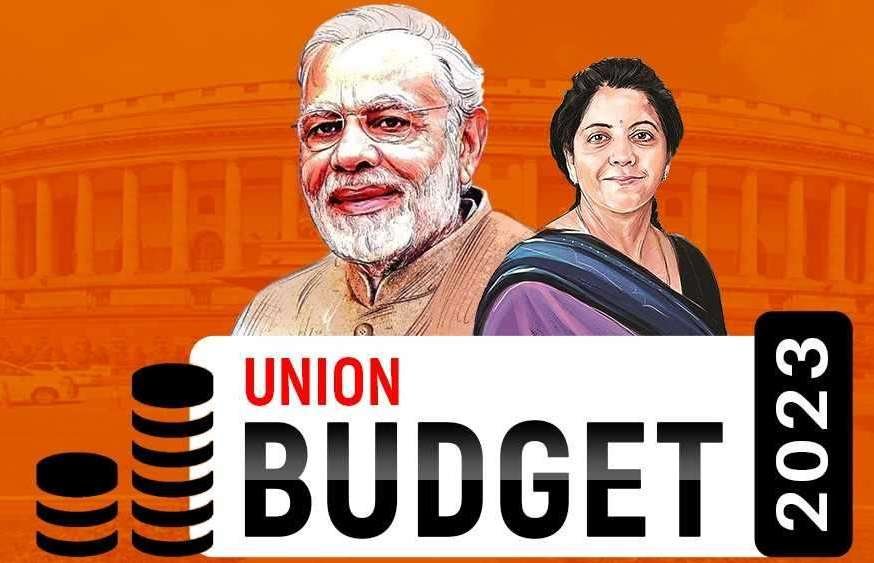By: Dipak Kurmi
Finance Minister Nirmala Sitharaman’s last full budget ahead of the general elections is decidedly pro-farm sector, with initiatives towards digitalisation, agri startups, sustainability, promotion of climate-smart crops, decentralised warehousing and allied sectors.
On the wish list for agriculture, several important boxes have been ticked. The Agriculture Accelerator Fund, with an outlay of Rs 10,000 crore, bears special mention. The need for entrepreneurship in a sector that has proved highly resilient, provides employment to 46% of Indians and accounts for 18% of the GDP, is acute. Agri-tech startups are necessary at every stage of the agriculture value chain, to bring innovative technology-based solutions aimed at increasing productivity and profitability for farmers.
According to the Economic Survey, a thousand or so entrepreneurs are already working in this space, for example towards better crop yields, minimising wastage and improving logistics, and are attracting significant private investment. The proposed digital public infrastructure for agriculture will be of value to agri-businesses and farmers alike. Open source, open standard and interoperable across digital platforms, it is aimed at providing information and market intelligence, as well as facilitating access to farm inputs, credit and crop insurance. Real time data on weather projections, market prices and mandi stocks will enable farmers to make smarter decisions. These are important steps forward in technology adoption in agriculture.
Decentralised warehousing is another potentially transformative initiative. Inadequate warehousing and limited cold storage capacity have long been major supply chain constraints. The more decentralised the better, in terms of reducing wastage of agricultural produce and allowing farmers to maximise profitability by selling when the price is right (dovetailing the scheme with e-NAM or the National Agriculture Market would have been a good step). It will also save on time, energy and transportation costs. The allied sectors in particular stand to benefit from decentralised warehousing.
Measures towards sustainability are a notable feature of this budget. These include promoting crop diversification (millets), allied agricultural activities (fisheries) and natural or at least low chemical-input farming. The proposal to make India the millet hub of the world is both doable and desirable, given that global awareness of the health and climate benefits of these nutritionally dense and drought resistant crops is growing. To that end, the FM proposes to turn the Indian Institute of Millet Research in Hyderabad into a centre of excellence, for sharing best practices at the international level. Over the last year, the government has done its bit to popularise ‘sree anna’, but will need to ensure better ROIs (returns on investment) for millet farmers. Government interventions have lent a positive push to production of oilseeds and pulses; the same can be done for millets.
The potential of allied agricultural activities, notably fisheries, animal husbandry and dairy, is still largely untapped. Significantly, while announcing increase in the farm credit target by 11% to Rs 20 lakh crore, the FM said the focus would be on “animal husbandry, dairy and fisheries”. Cooperative societies for these activities will be set up in villages which have not been covered so far. Fisheries development will receive an allocation of Rs 6,000 crore, as a sub-scheme under the Pradhan Mantri Matsya Sampada Yojana. Lowering of customs duty on inputs for shrimp farming is another welcome step.
The FM also announced a scheme to persuade one crore farmers to adopt natural farming. To support such farmers, bio-input resource centres will be set up. It must be noted, however, that efforts towards enhancing availability and accessibility of bio fertilisers and bio-pesticides haven’t proved successful in the past. From the point of view of scaling down the massive fertiliser subsidy, the PM PRANAM (Program for Restoration, Awareness, Nourishment and Amelioration of Mother Earth) has been launched with the objective of incentivising states and union territories to promote alternative fertilisers and balanced use of chemical fertilisers. Again in the context of sustainability, Rs 2,200 crore has been allocated for the Atmanirbhar Clean Plant Programme “to improve availability of disease-free quality planting material for high-value horticultural crops”.
The setting up of a National Cooperatives Database will be useful in implementing schemes related to cooperative societies, as will the allocation of Rs 2,516 crore to computerise the 63,000 agricultural societies across the country. Fragmentation of holdings is one of the major problems of the farm sector. From this perspective, better management of farmer producer organisations and farming cooperatives is vital to boosting incomes of small and marginal farmers.
The FM sensibly belied expectations of increasing the PM Kisan direct benefit transfer of Rs 6,000 per annum to farming households. Nor did she make any mention of statutory minimum support prices (MSP). A bigger allocation for R&D and improvement of mandi infrastructure (although this is a state subject) would have been desirable, but overall, the agriculture budget is forward-looking. (The author can be reached at dipaknewslive@gmail.com)







